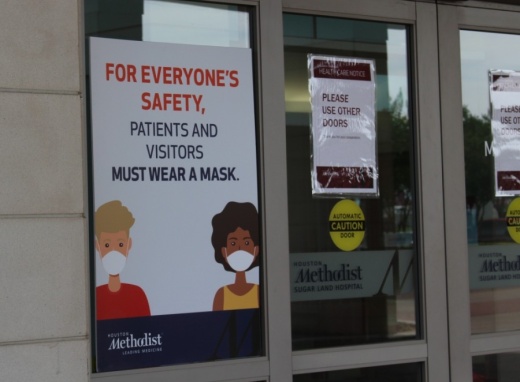Editor's Note: This story is part three in a three-part series on how the coronavirus pandemic has affected Sugar Land and Missouri City health care providers.
As Sugar Land health care providers continue to treat patients with the novel coronavirus, executives are beginning to reflect on how the virus has changed the future of medical care.
With hospitals and urgent care facilities reporting a decline in the number of non-coronavirus patients they are treating, Kathryn Tart, the dean of the University of Houston at Sugar Land’s College of Nursing, said she worries the coronavirus has interrupted individuals' continuity of care.
“I am concerned that people aren't going to get their medications refilled; I am concerned that they may have chest pain but they're too afraid to go to the hospital or they're too afraid to even call their doctor because they don't want to go anywhere,” she said.
Chris Siebenaler, the regional senior vice president and CEO of Houston Methodist Sugar Land Hospital, said nationwide hospitals have seen a reduction in heart attack and stroke patients, but these medical emergencies are still occurring, he said.
“People are still having heart attacks, they are still having strokes, but they're not coming to the hospital because they're fearful of coming into the environment,” Siebenaler said. “In reality, it's quite safe, and we don't want people to not receive care because they're fearful of coming into a hospital. That's not good.”
Still, local medical professionals said telehealth provides an alternative for people who may be fearful to visit a doctor’s office in person.
Dr. Juliet Breeze, CEO of Next Level Urgent Care, said at the beginning of the coronavirus pandemic she worked to launch a telehealth program to connect with people who may have been hesitant to come into the clinic.
Siebenaler said Houston Methodist also quickly saw the number of virtual telehealth visits outpace the number of in-clinic visits.
“There's no substitute for seeing a physician in person, in a clinic, especially for certain types of issues,” Siebenaler said. “But I think we've proven as an industry that virtual medicine is here to stay.”





